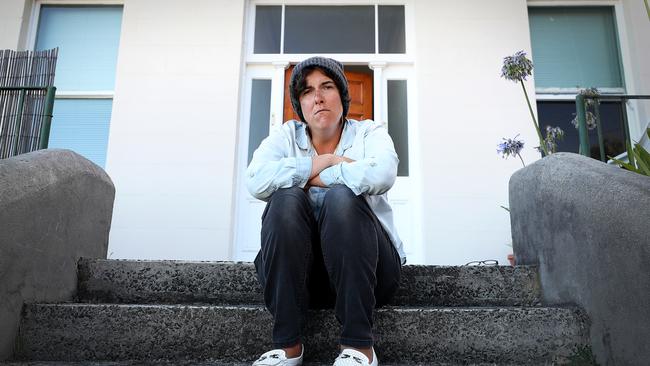Properties being used for accommodation soars, hitting rental crisis harder
THE first detailed study of Airbnb’s impact on Tasmania reveals the number of entire homes being offered on the short stay site has skyrocketed more than 290 per cent since mid-2016.

Tasmania
Don't miss out on the headlines from Tasmania. Followed categories will be added to My News.
THE first detailed study of Airbnb’s impact on Tasmania reveals the number of homes being offered on the short-stay site has skyrocketed more than 290 per cent since mid-2016.
The rise has coincided with a housing crisis in Hobart, with rental vacancy rates falling to as low as 0.4 per cent and rent prices increasing significantly.
The figures are revealed in a University of Tasmania Institute for the Study of Social Change blueprint for improving housing outcomes in Tasmania, released today, which calls for better regulation of the short-stay accommodation market.
In the Hobart local government area the number of homes being offered on Airbnb rose from 250 to 876 within 18 months — an increase of 167 per cent, and roughly equal to one out of every 27 residential properties.
In mid-2016 that number was one in 94.
Tasmania-wide the number of Airbnb listings has grown from 1827 in July 2016 to 4552 in January 2018.
One of the blueprint’s authors, Professor Richard Eccleston, said although some of the properties were granny flats or self-contained units, many had been removed from the private housing sector.
“If just 70 per cent of the ‘entire properties’ listed in Tasmania in January 2018 were previously in the long-term rental market, it would mean that approximately 2500 homes statewide, and more than 600 homes in inner Hobart alone, had been removed from the private rental housing pool,” Prof Eccleston said.
However, Prof Eccleston said he was not in favour of banning Airbnb.
“What we need is a clever policy framework that will allow us to capture the benefits of Airbnb without decimating inner city rental markets,” he said.
“There are a number of options for achieving better outcomes, including strategic zoning and levies in certain suburbs.”
Tasmania’s peak body for housing and homelessness, Shelter Tasmania, has also called for better regulation of online short-term accommodation.
The organisation’s executive officer Pattie Chugg has called on all political parties to facilitate a cross-sector housing summit this year to address the housing crisis.
West Hobart’s Claire Hutchison is one of those renters who is feeling the crisis first-hand.
Ms Hutchison’s lease has not been renewed, and she says she is facing homelessness from mid-March unless she secures housing support. Ms Hutchison’s former rental has been moved to Airbnb, and she has heard anecdotal reports from friends in similar situations.
“It’s a problem, because people can’t compete with that. It just means there’s another potential rental that’s lost to Airbnb,” she said.
“Everyone knows there is [a shortage], but nothing’s getting done about it.
“Housing is a human right, everyone deserves a roof over their head.”
Ms Hutchison has tried to find a rental in Launceston as well, and says she will fly to Melbourne if she cannot find somewhere to live.
In today’s Talking Point, Prof Eccleston writes that most proposals suggested by political parties during the state election campaign to fix the housing crisis “are short term and unlikely to be effective”.
“The next state government must tackle our housing crisis as a priority and develop an integrated suite of policy measures to provide urgent relief, while also improving housing outcomes in the longer term.”
The Government made changes to short-term visitor accommodation rules last year, allowing people to let up to four rooms in their homes without a permit.
The Institute’s blueprint recommends changes to Tasmania’s “complicated” stamp duty system, increasing social and affordable housing, and planning changes.
According to 2016 census data there were 23,681 residential properties in the Hobart local government area. The Hobart City Council has confirmed there are 23,000 rateable properties in the city.


